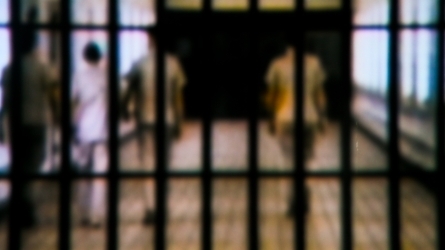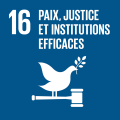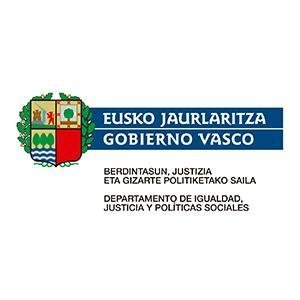
Cursos de Verano en el Centro Penitenciario de Donostia/San Sebastián: Aprendizajes mutuos
Description
Se realizarán dos círculos de diálogo, previa coordinación con la dirección del Centro y las personas que lleven programas relacionados en el Centro Penitenciario de Donostia/San Sebastián, orientados a las necesidades e intereses de las personas participantes y del Centro. Con una metodología participativa, propia de los círculos de diálogo, se introducirán los temas por los dinamizadores y se facilitará una conversación sobre el tema propuesto, con base en preguntas, respuestas y comentarios. Finalmente, se proporcionarán más recursos accesibles para las personas interesadas que quieran profundizar en el tema. Tres alumnos/as de Posgrado participarán ayudando en la dinamización.
Objectives
Acercar la actividad de los Cursos de Verano a los centros penitenciarios.
Crear una atmósfera de diálogo y de conversación signficativa sobre temas de interés de las personas internas y del propio centro y sus trabajadores.
Resolver dudas concretas sobre temas complejos de interés de las personas participantes mediante una actividad de diálogo incluyente y respetuoso.
Activity directed to
- Internos/as del Centro Penitenciario
Organised by
Program
18-07-2024
Bienvenida
Presentation by the Director of the activity
- Gemma Maria Varona Martínez | IVAC/KREI - Directora
“Amor, sexo y prisión“
- Javier Gómez Zapiain | SVV - Profesor de Psicología
Synthesis
19-07-2024
“El vínculo entre la violencia interpersonal y la violencia hacia los animales y cómo la intervención con animales puede ayudar a víctimas y personas en prisión: Miradas restaurativas de conexión“
- Gemma Maria Varona Martínez | IVAC/KREI - Directora
Synthesis
Directors

Javier Gómez Zapiain
Sociedad Vasca de Victimología
Ex Profesor Titular Psicología de la Sexualidad de la Universidad del País Vasco / Euskal Herriko Universitatea. Más información sobre su larga trayectoria investigadora docente y divulgadora en: www.javiergomezzapiain.com/

Gemma Maria Varona Martínez
IVAC KREI
Gema Varona Martínez (Madrid, 1969) is director of the Basque Institute of Criminology/Kriminologiaren Euskal Institutua (Donostia/San Sebastián, University of the Basque Country), where she coordinates the Laboratory of Theory and Practice of Restorative Justice (https://www.ehu.eus/es/web/ivac/sarrera), which directs the Technical Secretariat of the Basque Forum of Restorative Justice promoted by the Basque Government. PhD in Law, Diploma in Criminology and Master in Legal Sociology, she teaches Criminal Policy and Victimology at the Faculty of Law (UPV/EHU), co-directs the Postgraduate course “Working with victims” (UPV/EHU) and is co-editor of the Journal of Victimology/Journal of Victimology. Principal researcher in several projects (among them, in addition to those on interpersonal and political violence, currently one of the Ministry of Science on restorative justice in damages against ecosystems and animals), she is president of the working group on environmental restorative justice of the European Forum for Restorative Justice, and author of monographs, chapters and articles in specialized journals (her most recent publications can be found at https://orcid.org/0000-0002-2794-2239
Speakers

Javier Gómez Zapiain
Sociedad Vasca de Victimología
Ex Profesor Titular Psicología de la Sexualidad de la Universidad del País Vasco / Euskal Herriko Universitatea. Más información sobre su larga trayectoria investigadora docente y divulgadora en: www.javiergomezzapiain.com/

Gemma Maria Varona Martínez
IVAC KREI
Gema Varona Martínez (Madrid, 1969) is director of the Basque Institute of Criminology/Kriminologiaren Euskal Institutua (Donostia/San Sebastián, University of the Basque Country), where she coordinates the Laboratory of Theory and Practice of Restorative Justice (https://www.ehu.eus/es/web/ivac/sarrera), which directs the Technical Secretariat of the Basque Forum of Restorative Justice promoted by the Basque Government. PhD in Law, Diploma in Criminology and Master in Legal Sociology, she teaches Criminal Policy and Victimology at the Faculty of Law (UPV/EHU), co-directs the Postgraduate course “Working with victims” (UPV/EHU) and is co-editor of the Journal of Victimology/Journal of Victimology. Principal researcher in several projects (among them, in addition to those on interpersonal and political violence, currently one of the Ministry of Science on restorative justice in damages against ecosystems and animals), she is president of the working group on environmental restorative justice of the European Forum for Restorative Justice, and author of monographs, chapters and articles in specialized journals (her most recent publications can be found at https://orcid.org/0000-0002-2794-2239
Venue
Martutene prison
Paseo de Martutene, 1, 20014 Donostia/San Sebastián
Gipuzkoa
Martutene prison
Paseo de Martutene, 1, 20014 Donostia/San Sebastián
Gipuzkoa
Sustainable development goals
Agenda 2030 is the new international development agenda approved in September 2015 by the United Nations. This agenda aims to be an instrument to favour sustainable human development all over the planet, and its main pillars are the eradication of poverty, a reduction in equality and vulnerability and fostering sustainability. It is a unique opportunity to transform the world up to 2030 and guarantee human rights for all.

16 - Peace, justice and strong institutions
Foster peaceful and inclusive societies for sustainable development, facilitate access to justice for everyone and construct efficient and inclusive institutions that are accountable at all levels. Key issues: a reduction in violence, mistreatment and exploitation, the rule of law, equal access to justice, a reduction in corruption and bribery, efficient and transparent institutions, participation, access to information, protection of fundamental freedoms.
More information






